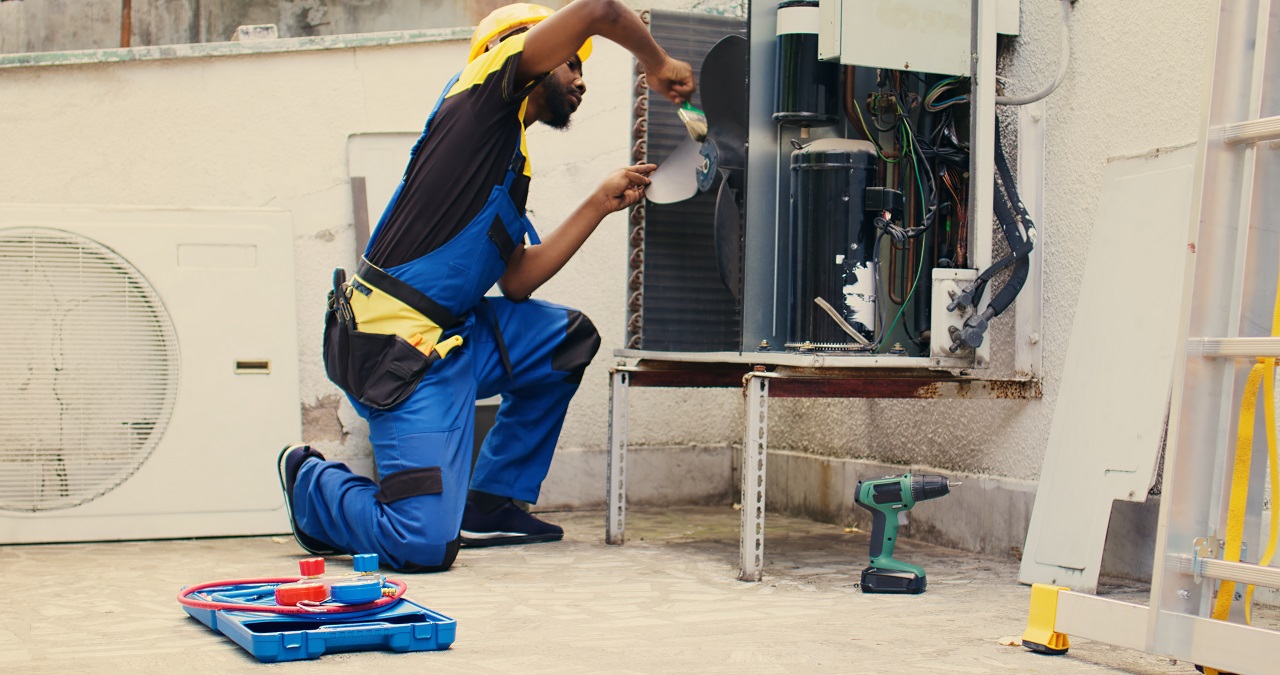Having an efficient HVAC system is essential for maintaining a comfortable and healthy indoor environment. When your system isn’t working efficiently, it can lead to higher energy bills and less effective heating or cooling. Identifying signs of inefficiency early can help you address problems before they become costly repairs.
Common Signs of HVAC System Inefficiencies
Recognizing signs of inefficiency in your HVAC system can help you address problems early. One common sign is uneven temperatures throughout your home. If some rooms are much hotter or colder than others, it indicates that your HVAC system isn’t distributing air evenly. This could be due to blockages, duct issues, or a failing component in the system.
Unusual noises coming from your HVAC unit are another red flag. Strange sounds like banging, rattling, or hissing can indicate various issues. These noises may suggest loose parts, refrigerant leaks, or problems with the blower motor. Addressing these noises quickly can prevent further damage.
A sudden increase in energy bills is also a potential sign of HVAC inefficiency. If your utility costs spike without a corresponding increase in usage, your system may be working harder than necessary. This could result from dirty filters, blocked airflow, or outdated equipment. Keeping an eye on your energy bills can help you spot inefficiencies early.
Causes of Inefficiencies in HVAC Systems
Several factors can cause your HVAC system to become inefficient. Dirty or clogged air filters are a common culprit. Filters trap dust, dirt, and other particles, preventing them from entering your system. When filters become clogged, they restrict airflow, making your system work harder to maintain the desired temperature.
Another cause is improper maintenance. Regular HVAC maintenance is essential for keeping your system running smoothly. Neglecting tasks like cleaning coils, checking refrigerant levels, and lubricating moving parts can lead to decreased efficiency. Over time, lack of maintenance can cause components to wear out faster, reducing the system’s overall performance.
Ductwork issues can also contribute to inefficiencies. Leaky ducts allow conditioned air to escape, making it harder to achieve the desired indoor temperature. This forces your system to work harder, increasing energy consumption and reducing efficiency. Ensuring your ducts are sealed and insulated can significantly improve system performance.
By understanding common signs and causes of HVAC inefficiencies, you can take proactive measures to maintain your system’s efficiency. Regular maintenance and prompt attention to potential issues can help keep your HVAC system running efficiently and extend its lifespan.
DIY Tips for Improving HVAC Efficiency
Improving HVAC efficiency doesn’t always require professional intervention. There are several steps you can take yourself to enhance system performance. First, regularly replace or clean air filters. This simple task can significantly increase airflow and reduce the workload on your HVAC system. Most filters need attention every one to three months depending on usage and filter type.
Another effective DIY tip is to keep your outdoor unit free of debris. Leaves, grass, and dirt can accumulate around the unit, obstructing airflow. Trim any plants or shrubs that are too close to the unit, and periodically clean the condenser coils with a garden hose. This will help the unit operate more efficiently.
Use a programmable thermostat to manage your home’s temperature effectively. Setting your thermostat to adjust temperatures automatically based on your schedule can reduce the strain on your HVAC system. This leads to less energy use and more consistent comfort. Regularly checking and sealing ducts can also help in ensuring that all rooms in your house reach the desired temperature.
The Importance of Professional HVAC Maintenance
While DIY tips can help maintain your HVAC system, professional maintenance is crucial for optimal performance. Our professionals have the expertise to diagnose and resolve complex issues that you might not detect. Scheduling regular maintenance ensures that all system components are in good working condition and helps prevent unexpected breakdowns.
Professional HVAC maintenance involves a thorough inspection of your system. Our technicians will check for refrigerant levels, inspect electrical components, and clean critical parts like blower fans and coils. These actions not only improve efficiency but also extend the lifespan of your HVAC unit. Regular check-ups can catch small issues before they become major problems, saving you money in the long term.
Investing in professional maintenance can also improve indoor air quality. Our professionals can identify and address problems that DIY methods may overlook. Trusting experts ensures that your HVAC system meets rigorous standards and operates at peak efficiency.
Conclusion
Addressing HVAC system inefficiencies is crucial for maintaining a comfortable and efficient home environment. By recognizing common signs of inefficiencies and understanding their causes, you can be proactive in keeping your system running smoothly. Simple DIY tips can make a noticeable difference, but professional HVAC maintenance is essential for long-term reliability.
Regular maintenance by our technicians ensures that your system performs optimally and avoids costly breakdowns. Investing in HVAC maintenance can lead to a more efficient system, lower energy bills, and improved indoor air quality. Take the time to assess and maintain your HVAC system to enjoy year-round comfort and peace of mind.
For comprehensive HVAC maintenance in Fort Myers, FL, contact Island Aire Of Southwest Florida Inc. Our team of experts is ready to help you address and resolve any inefficiencies in your HVAC system. Schedule a maintenance appointment with us today to ensure your home’s comfort and efficiency!




